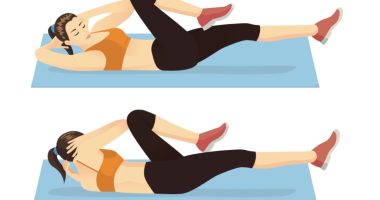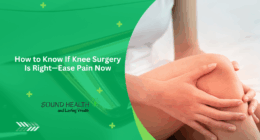A hiatal hernia can be a surprising and uncomfortable condition, especially for women over 50. As the diaphragm weakens with age and other factors come into play, the stomach may push through the diaphragm into the chest cavity, causing various symptoms that can impact daily life. Understanding what a hiatal hernia feels like and recognizing its symptoms is essential for timely care and preventing complications. We provide a comprehensive overview of hiatal hernias, focusing on why women 50 and older should pay attention to key signs and what steps to take for management.

What is a Hiatal Hernia?
According to Anish Sheth, MD, gastroenterologist and Chief of Gastroenterology at Penn Medicine Princeton Medical Center, a hiatal hernia occurs when a part of the stomach bulges through the hiatus, an opening in the diaphragm, into the chest cavity. This anatomical change can interfere with normal stomach and esophagus function, often leading to acid reflux and discomfort. While many small hiatal hernias cause no symptoms, larger ones may produce significant symptoms requiring medical attention.
What Causes a Hiatal Hernia?
The causes of hiatal hernias are linked to factors that increase abdominal pressure or weaken the diaphragm muscle. Key contributors include pregnancy, obesity, and aging:
Pregnancy: The pressure from the growing uterus can push the stomach upwards, increasing the risk of hernia development.
Obesity: Excess abdominal fat raises intra-abdominal pressure, forcing the stomach through the diaphragm.
Age: Muscle weakening and loss of elasticity with age reduce the diaphragm’s ability to hold the stomach in place, making hernias more common in older adults.
Why Women Over 50 Are Especially at Risk
Women 50 and older face a higher likelihood of developing a hiatal hernia due to the combined effects of aging tissues and common life events such as pregnancy. Postmenopausal changes, including decreased estrogen, may also affect connective tissue strength. Studies show that hiatal hernias occur more frequently in women than men, approximately 55% to 60% of individuals older than 50 have a hiatal hernia, emphasizing the importance of symptom awareness in this demographic.
What Does a Hiatal Hernia Feel Like? 4 Key Symptoms
Women over 50 with a hiatal hernia often experience the following symptoms, which may vary in intensity but should not be ignored:
Acid Reflux: Uncontrolled stomach acid flowing back into the esophagus can cause a burning sensation and discomfort, especially after meals or when lying down. This reflux may lead to persistent throat irritation or coughing.
Heartburn, Especially After Lying Down: A common and tell-tale symptom, heartburn manifests as a burning pain in the chest, often worsening when lying flat or bending over. This positional nature helps distinguish it from cardiac chest pain.
Indigestion: Feelings of fullness, bloating, or discomfort after eating small amounts of food can indicate that the hernia affects stomach emptying or acid control.
Chest Pain: Pain caused by the hernia can sometimes mimic heart-related pain but is often linked to stomach pressure and acid irritation.
Signs That a Hiatal Hernia is Getting Worse
It is critical to recognize when symptoms worsen, as they may indicate complications needing urgent care:
Increased frequency or severity of heartburn and acid reflux
Difficulty swallowing or feeling like food is stuck
Shortness of breath from the stomach pressing on the lungs
Persistent chest pain not relieved by typical measures
Frequent burping, hiccups, or regurgitation of food
Vomiting blood or passing black stools, signs of bleeding in the digestive tract requiring immediate medical attention
Common Hiatal Hernia Treatments
Managing a hiatal hernia often involves lifestyle changes and medications:
Dietary adjustments such as smaller meals, avoiding trigger foods, and not lying down immediately after eating
Weight management and cessation of smoking
Medications to reduce stomach acid or improve motility
In severe cases, surgical options like laparoscopic repair or fundoplication may be recommended to restore normal anatomy and function, with success rates generally above 80%
The Bottom Line on Hiatal Hernia Symptoms
Women over 50 should be vigilant for symptoms of a hiatal hernia, given their increased risk and potential for complications. Recognizing acid reflux, heartburn especially when lying down, indigestion, and chest pain can lead to early diagnosis and effective management. Ignoring these symptoms might lead to worsening conditions that affect quality of life and require surgical intervention. Consulting a healthcare professional is essential for proper diagnosis and personalized treatment planning.
By understanding the symptoms and risks associated with hiatal hernias, women can take proactive steps to maintain digestive health and overall well-being.
Also Read | Flu Symptoms To Watch For in 2025: Why Women Are More Affected









